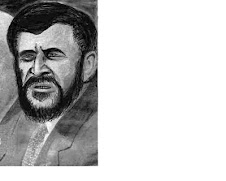 |
| Darkness at Noon: Krystal Nacht |
Mr. Lind points out, however, that, "political and economic debate proceed as though the bursting of the global bubble economy did not discredit any school of thought", a phenomena that seems to have escaped the notice of the vast majority of our fellow citizens. How can this be? How can the 'Washington Consensus' that so off-handedly decided that the fall of the USSR relegated communism to the dustbin of history, casually proceed with business as usual, simply pretending that the largest financial crisis since the Great Depression that had the effect of transforming every OECD nation into a centrally planned, militaristic tool of their high-born elites didn't happen, is a viable plan for the future?
Lind notes that, on both sides of the Atlantic, both the left and right wings, far from suggesting new modes of thinking and new, well, anything, have instead regressed to the point where they simply have ended up, "promoting rival cliques of ambitious apparatchiks rather than the epochal thinking the times require".
To answer that question, Mr. Lind posits that the extreme wealth polarization and accelerating inequality produced by, among other things, the middle class abandonment of the underclass, produced a disconnect between the political elite and the polity, but it seems his primary thesis is that, "the power and wealth that incumbent elites accumulated during the decades of the global bubble economy" continues to pervert the economy and forestall any discussion, never mind action, on how to amend the dysfunctionality of the current regime.
However, without arguing with Mr. Lind's ananlysis, it would be remiss not to stop right there and question what drove the powerful elites of the USA, already wielding more influence than any previous power elite in the history of mankind, to put into office a President who would change the world so radically that it is unrecognizable from what it was in 1980 when their push to aggrandize every mode of wealth production and, with the help of the World Bank and the IMF, turn entire economies into stripmining operations dedicated to resource extraction with the profits derived therefrom providing a steady stream of income away from the producers of wealth and into the hands of the aggrandizers.
Although the mechanisms of such policy decisions are described in such books as John Perkin's "Confessions of an Economic Hitman" and Antonia Juhasz's "The Bush Agenda", while its geopolitical and militaristic ramifications are described in Chalmers Johnson's trilogy of books that started with "Blowback", published before 2001, followed by "The Sorrows of Empire", and ending with the 2006 publication of "Nemesis, The Last Days of the American Republic", the reasons for the USA to take such a turn from the post WW2 world of constructive socialistic investment of Federal government monies in public projects, such as the Nuclear power industry, Marshall Plan, and the Moon Landing, all of which were enormously successful in enabling the economic growth of entire geographic regions and countries, while spawning industries that would have been impossible without them, and turning instead, with what can only be described as disastrous consequences, to a regime of private enrichment that deliberately impoverished huge swathes of the population of a Democratic Republic by transforming a vibrant shared-wealth economy into a cheap-labor, low-tax, anemic-growth petri-dish atmosphere in which squabbling over resource limitations that only ruinous investments in dangerous technologies had the slightest hope of alleviating, had to have another deeper, fundamental side to its implementation besides pure mendacity.
Or such was my belief.
The answer, it seemed, lay in the fact that the USA, with less than 4% of the global population, consumed 25% of its resources. And of one of those resources, oil, it was such a major producer, that it was in control of the world price, increasing or decreasing its output in response to demand (OPEC learned from the best). However, by 1971, The US found itself on the wrong side of Hubbert's peak, and could no longer, no matter how many holes it drilled, increase production enough to satisfy even its own needs, let alone export excess capacity to its now-former customers. Anthony Sampson describes the oil politics of the day in his great book, "The Seven Sisters", referring not to the Pleiades or the liberal colleges of New England, but to the group of oil companies that controlled 85% of the world's oil supply prior to OPEC: Anglo-Persian Oil Company (now BP); Gulf Oil, Standard Oil of California (SoCal) and Texaco (now Chevron); Royal Dutch Shell; and Standard Oil of New Jersey (Esso) and Standard Oil Company of New York (Socony) (now ExxonMobil).
It was the collapse of this control, and with it, that of the oligarchic regime that maneuvered it, that initiated a scramble to maintain their ascendancy and gave rise to the need for a different program, one dominated by a more aggressive projection of power to the places on the globe the oil existed, and enabled by a newly-energized military, the construction of which was to be financed via credit derived from running up huge federal budget deficits, instead of taxation, such that the costs would be levied on future generations, without risking their own capital: Die Neue Ordnung, the name Bush Sr dubbed the strategy, and the exact same phrase that Hitler used in building a third Reich comprised of citizens whose leaders asserted that, "They obey, and that's the main thing", a fact with which WW2 veteran and CIA director GHW Bush was quite familiar.
And that's why we're at the impasse puzzled over by Michael Lind now. Not because there are no solutions nor that a general prosperity, enabled by some of the wonders a still-federal-tax-dollar-enabled industry has wrought since, is impossible. But because all the branches of government and the sinews of industry are now bent in the service of a newly-minted, militarized elite, who find themselves tantalizingly poised on the cusp of realizing all their dreams of using the very burden of the overhang of debt and crushing interest, which the SupraClass themselves caused to be amassed in their grab for power, as a fulcrum to divide and conquer the underclasses, thus allowing them to slash and shred the remnants of the social fabric paid for with the lives and blood of FDR's WW2 Warriors.
In the foreword to Rudolf Leonhardt's, "This Germany: The Story Since the Third Reich", the author lists the faults the victors associated with the inhabitans of the Rhineland. Every one of these 'attributes' was proudly paraded on the dais during the Republican presidential debates:
1) Ruthlessness toward the weak. Now a Celebrated ruthlessness.
2) Self-pity, with none left for others: "Blame yourselves"
3) Arrogance: when they can't be arrogant, they are craven: Newt
4) Glorification of War and Militarization.
5) Extremes of cock-eyed idealism or crass materialism; uninformed apathy or hybrid intellectual detachment: Michele Backmann meets William Krystal.
6) Don't know the meaning of freedom: perverting it instead to mean the freedom of the elites to subjugate the poor, the freedom of a gun-toting minority to hold sway over unarmed, peace-loving citizens, the equating of freedom of speech with money, and the deliberate conflation of Corporations with human beings.
7) They will never be democrats, preferring to be subjects: GW's acolytes.
Thus have we reached the state of affairs we are in now, wherein no real discussion has taken place, because none will be allowed. Our investment in Totalitarianism is too great to go back now, the turn in the road too obscured to enable us to return and find the right path, or a righter path. All we can do now, all we can hope for anymore, is to be able to maintain order, while the results of our calamitous decisions burn the rest of the globe to a cinder while we, of course, entitled, and exceptional, as always, remain aloof in Fortress America, clucking in disapproval at the misguided fools that inhabit the rest of our sorrowful planet.



















































No comments:
Post a Comment